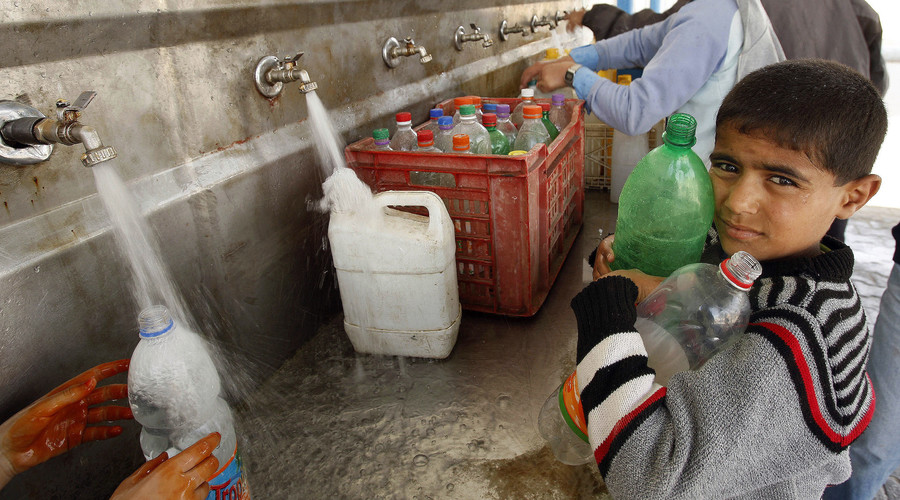‘Israel’s water war against Palestinians form of collective punishment’
\RT

Israel has done so much to ensure that Palestinians don’t have access to water - not only as a form of collective punishment, but to also to ensure Palestinians do not develop their economy, says Ramzy Baroud, editor of The Palestine Chronicle.
Tens of thousands of Palestinians have reportedly been left without access to safe drinking water, according to Palestinian authorities.
In an official response to RT, Israel's national water company denied the allegations. It claimed that following a shortage in supplies, it was forced to reduce the volume of water for all residents and not just Palestinians.
It also said the supply is enough to meet consumption.
The timing could not be worse for Palestinians as temperatures are high, and the Holy month of fasting for Muslims is only worsening the situation.
RT: Why do you think Israel is doing this?
Ramzy Baroud: Israel has been utilizing water in its war against the Palestinians for a long time. Particularly, since 1967, since its occupation of the West Bank and the rest of the occupied territories in 1967. There has been a raging water war that Israel has used and it uses it against larger collectives, against the population, as a form of collective punishment. Throughout its history of conflict with the Palestinians, Israel has done so much to ensure that Palestinians don’t have access to water - not only as a form of collective punishment, but to also ensure that the Palestinians do not develop their economy because it is reliant on between 14 to 20 percent on agriculture. And it is pretty much the only sustainable industry in Palestine right now. By denying them water, you are basically destroying their crops. So, that’s another major reason the Israelis have done this. There are other reasons as well. There is an ongoing Intifada; there is an uprising in the West Bank. And cutting water supplies and preventing people the freedom of movement, separating Jews from the West Bank, these are the immediate Israeli strategies that come to mind whenever they are in a situation like this. So, it is another form of collective punishment. But this is really bordering on not just a tragedy, but a humanitarian crisis here. Because we are talking about places like the city of Jenin that has about 50 percent of its water supplies cut off at the moment. This is a city of over 40,000 people and it is going through the Holy month of Ramadan when people need to have access to food and water more than any other time because of the Iftar, because of breaking the fast and now they are being denied that access. The tragedy of all tragedies is that the water that Israelis are holding back from Palestinians is actually Palestinian water. So, this is really important to keep in mind. Israel steals the water of the Palestinians from the West Bank aquifers, repackages and sells them the water back and now they are actually cutting them off from the very water they stole from the Palestinians in the first place.
RT: How serious is the situation in the affected areas?
RB: The situation is quite serious in the villages and cities that are affected. In Jenin and Salfit particularly, and many villages around Nablis… in the West Bank are also affected. We are looking here at entire families having to live on as little as two to three liters of water a day. And they are buying it from outside sources. Two or three liters of water a day for an entire family, while the UN says that the absolute minimum requirement of water per capita is 7.5 liters. And these are for areas where it doesn’t get so terribly hot, as is the case in the West Bank right now. So, of course, we are talking about a very serious situation that could in fact develop into a tragic situation with terrible consequences if the international community does not immediately intervene, if the UN does not raise its voice and put some serious pressure on Israel to allow Palestinians access to their water.
SIX YEARS AGO:
SIX YEARS AGO:

Pure Pallywood Bullshit.
ReplyDelete